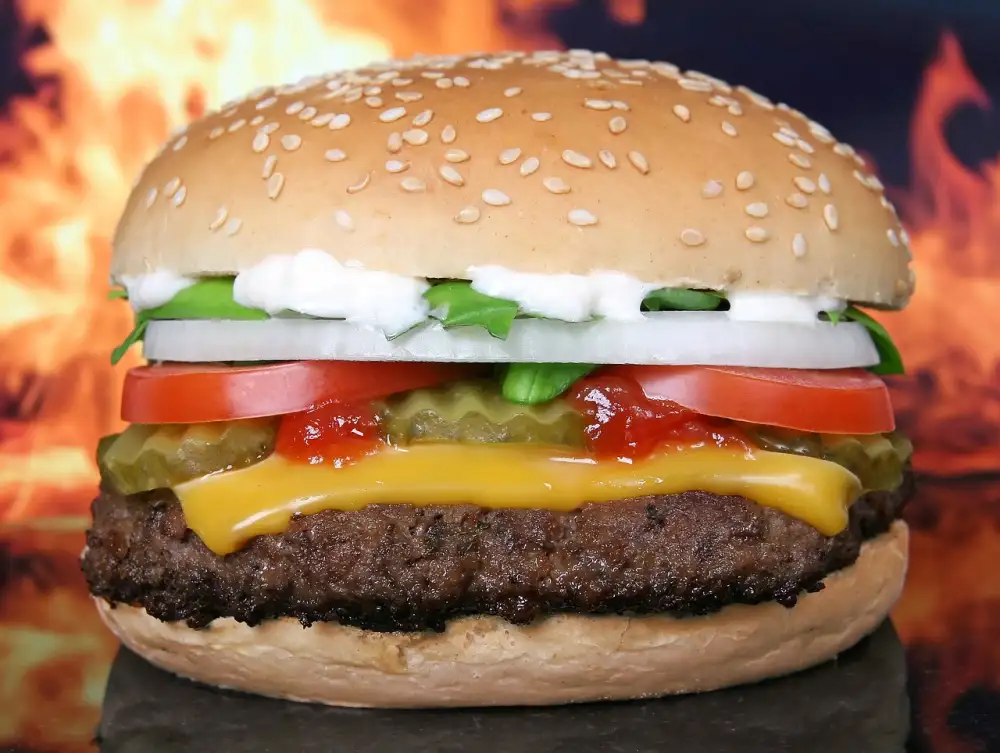Burger King Closures Shake Up the Home of Fast Food: The Latest News on Store Shutdowns

In a surprising turn of events, Burger King, one of the largest fast food chains in the world, has announced a series of store closures. This news has sent shockwaves through the industry and raised questions about the future of fast food. With its iconic flame-grilled burgers and signature Whopper sandwich, Burger King has long been a staple in the fast food landscape. However, recent challenges have forced the company to make some tough decisions regarding its store operations. Let's delve deeper into this development and explore what it means for both Burger King and the wider restaurant industry.
Impact of COVID-19 on the Restaurant Industry
The COVID-19 pandemic has had a profound impact on the restaurant industry, and Burger King is no exception. The widespread closures and restrictions imposed to curb the spread of the virus have severely affected the fast food giant's operations. With dine-in services suspended and customers opting for takeout or delivery, Burger King has experienced a significant decline in sales. The reduced foot traffic and changing consumer behavior have forced many restaurants, including Burger King, to reassess their business strategies and make tough decisions regarding store closures. The industry as a whole is grappling with the challenges posed by this unprecedented crisis, and Burger King's store closures are just one example of the far-reaching consequences of COVID-19 on the fast food landscape.
Burger King's Decision to Close Stores
Burger King, one of the largest fast food chains in the world, has recently made the difficult decision to close a number of its stores. This move comes as a response to the ongoing challenges faced by the restaurant industry due to the COVID-19 pandemic. With restrictions on dining in and reduced customer traffic, Burger King, like many other restaurants, has been struggling to stay afloat. In order to mitigate financial losses and ensure long-term sustainability, Burger King has had to make tough choices regarding store closures. While this decision is undoubtedly disappointing for fans of the iconic fast food chain, it is a necessary step towards adapting to the changing landscape of the industry.
Reasons Behind Burger King's Store Closures
There are several reasons behind Burger King's decision to close stores. One of the main factors is the impact of the COVID-19 pandemic on the restaurant industry. With lockdowns and social distancing measures in place, many fast food chains have experienced a significant decrease in foot traffic and sales. This has forced Burger King, like many others, to reevaluate their business strategies and make tough decisions.
Another reason for the store closures is the changing consumer preferences and demands. In recent years, there has been a shift towards healthier eating habits and a growing interest in plant-based alternatives. Burger King's traditional menu, which heavily relies on meat-based products, may no longer be as appealing to a large segment of consumers.
Additionally, rising costs of operation such as rent, labor, and ingredients have put pressure on Burger King's profitability. As competition in the fast food industry continues to intensify, it becomes increasingly challenging for companies to maintain their market share and stay profitable.
Lastly, Burger King's store closures can also be attributed to their focus on streamlining operations and optimizing efficiency. By closing underperforming locations, they can redirect resources towards more profitable areas and invest in innovative initiatives that align with evolving consumer trends.
Overall, these various factors have contributed to Burger King's decision to close stores as they strive to adapt to the changing landscape of the fast food industry.
Effects on Burger King Employees
The store closures by Burger King have had a significant impact on its employees. With the shutdowns, many workers are facing job losses and uncertainty about their future. The sudden closure of stores means that numerous employees will be left without employment, leading to financial hardship for them and their families. This situation is particularly challenging during the ongoing COVID-19 pandemic, where finding new job opportunities can be even more difficult. Burger King's decision to close stores has undoubtedly caused distress and anxiety among its dedicated workforce.
Consumer Reactions to Burger King's Store Closures
Consumer reactions to Burger King's store closures have been mixed. While some loyal customers expressed disappointment and sadness over the loss of their favorite fast food chain, others understood the difficult decision in light of the ongoing pandemic. Many took to social media platforms to share their memories and express their support for Burger King employees who were affected by the closures. Some even started online petitions urging the company to reconsider its decision. Overall, consumers are hopeful that Burger King will bounce back stronger and continue serving their beloved flame-grilled burgers in the future.
Future Plans for Burger King
Despite the store closures, Burger King remains committed to its customers and is actively working on plans for the future. The company aims to adapt to the changing landscape of the fast food industry by focusing on innovation and digital transformation.
Burger King intends to invest in technology and enhance its online ordering systems, delivery services, and mobile app. By leveraging these advancements, they hope to provide a seamless and convenient experience for their customers.
Additionally, Burger King is exploring new menu options to cater to evolving consumer preferences. They are considering introducing plant-based alternatives and healthier choices to meet the growing demand for nutritious fast food options.
Furthermore, Burger King plans to revamp their marketing strategies and engage with customers through social media platforms. They aim to create a stronger brand presence and connect with their target audience in more meaningful ways.
While some store closures may be inevitable due to economic factors, Burger King is determined to bounce back stronger than ever. With a focus on innovation, customer satisfaction, and adapting to changing trends, they are determined to remain a prominent player in the fast food industry.
As the world continues to recover from the impact of COVID-19, it will be interesting to see how Burger King's future plans unfold and how they navigate through these challenging times.
Burger King's store closures highlight the evolving nature of the fast food industry. As the COVID-19 pandemic continues to impact businesses worldwide, restaurants are forced to adapt or face closure. Burger King's decision to close stores is a reflection of the challenges faced by many in the industry.
This shift signals a changing landscape where fast food chains must find innovative ways to stay relevant and profitable. With an increased focus on delivery and takeout options, as well as implementing safety measures for dine-in customers, fast food giants like Burger King are reevaluating their strategies.
While these closures may be disheartening for employees and fans of the brand, it is important to recognize that this is not unique to Burger King. Many other fast food chains are facing similar challenges and making difficult decisions.
As we move forward, it will be interesting to see how Burger King and other fast food chains navigate these uncertain times. Will they continue to close stores or find new ways to thrive in a post-pandemic world? Only time will tell, but one thing is certain – the fast food industry will never be the same again.
Published: 03. 01. 2024
Category: Home



